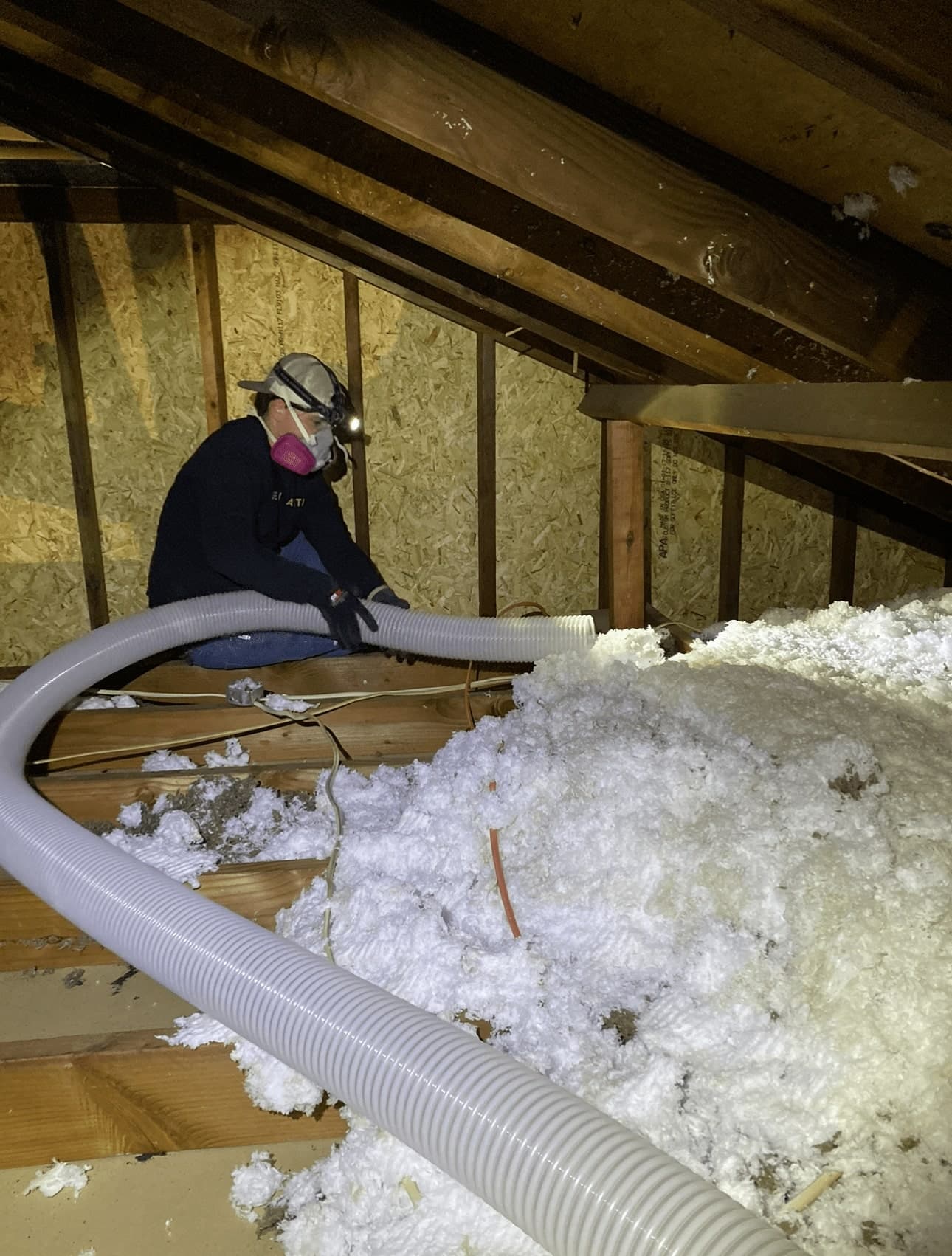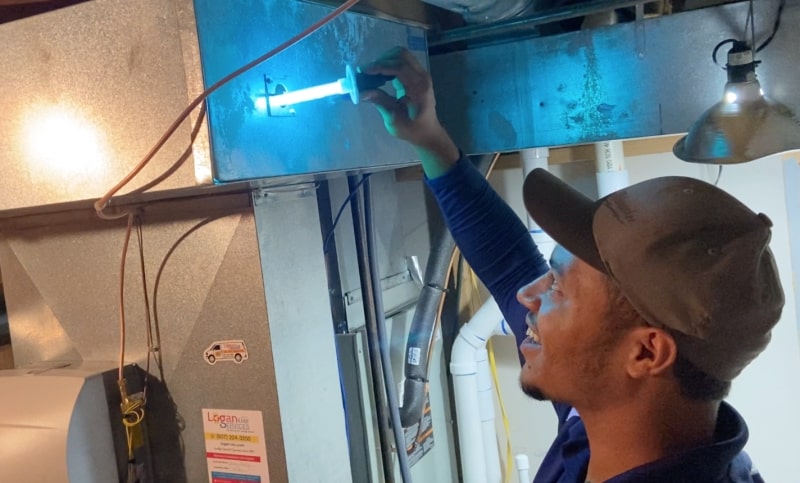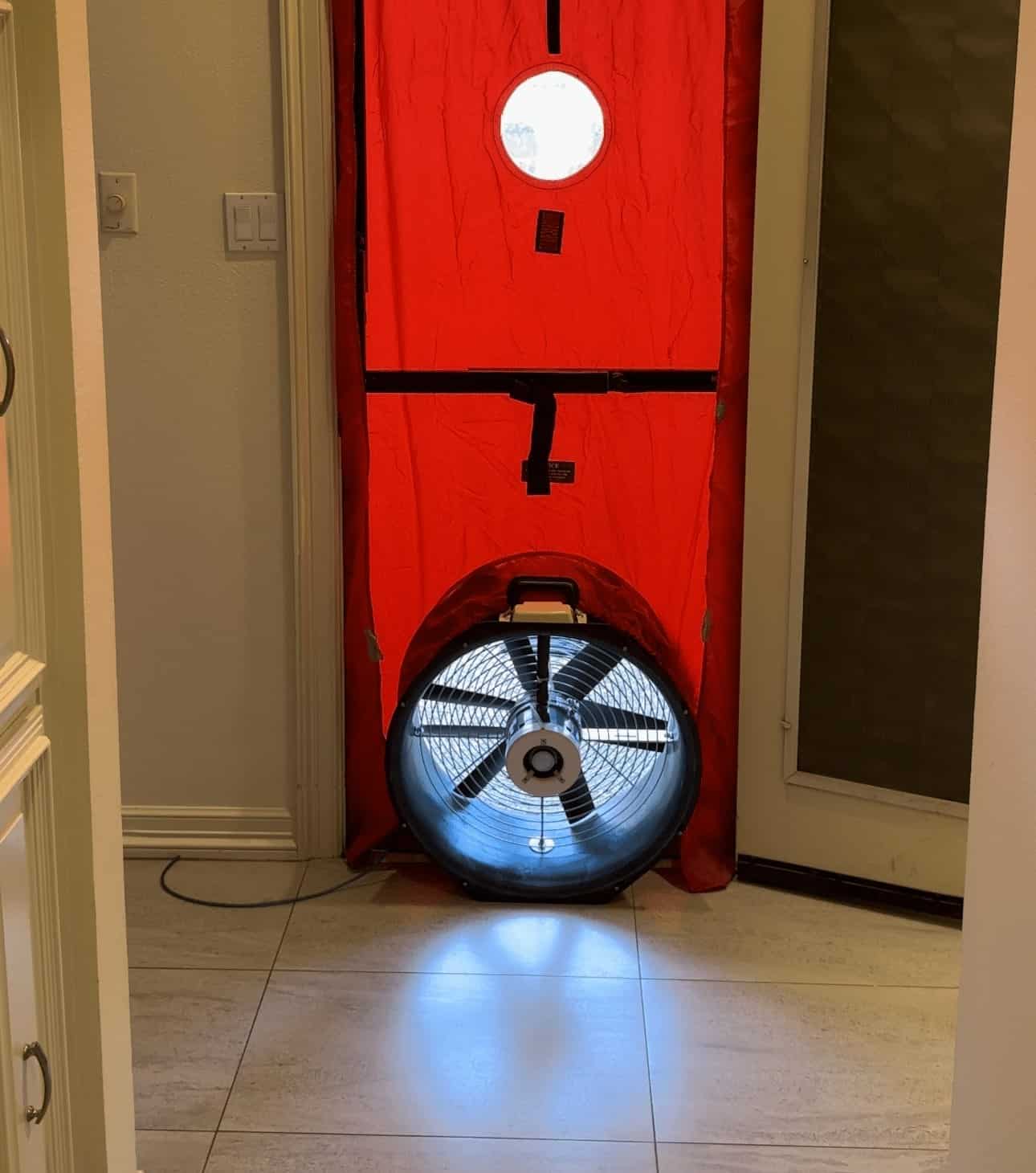The Basic Principles Of Green Attics
The Basic Principles Of Green Attics
Blog Article
See This Report on Green Attics
Table of ContentsRumored Buzz on Green AtticsThe Only Guide for Green AtticsThe Greatest Guide To Green AtticsThe Definitive Guide to Green AtticsGreen Attics Things To Know Before You BuySome Known Details About Green Attics The Basic Principles Of Green Attics
Around the smokeshaft. Building ordinance call for that air areas between smokeshafts and floor or ceiling assemblies whereby they pass be sealed with a non-combustible fire stop (see Number 5-3 and Number 5-4). Along the edge of common wall surfaces. There is commonly a gap in between the event wall (such as the common wall in between devices in duplexes, triplexes and row houses) and the edge of the attic room floor.
A hefty polyethylene sheet which is caulked with acoustical sealer and stapled to the ceiling frames the electric box. An electric wire leads away from the electric box and down with an opening right into an indoor wall. Openings around electric cords are loaded with caulking or foam sealant, and caulking seals gaps along the top of the interior wall surfaces.
Attic air flow offers a variety of purposes. Duct cleaning. It minimizes summer season warm build-up, lengthening the life of roof and reduces air conditioner loads. After air securing, attic room air flow is your 2nd line of protection versus the water vapour that may have discovered its way right into the attic. It guarantees a chillier, well-vented attic space much less vulnerable to the formation of ice dams at the eaves.
Some Known Factual Statements About Green Attics
You may need to situate roofing or soffit vents from outdoors if they are not clearly noticeable from inside the attic room. Houses with actually peaked roofing systems and available attic rooms are the simplest to vent by utilizing the proportion of 1 to 300. This proportion refers to unhampered air vent area to the protected ceiling location.

The following Parts detail the best technique depending on your attic type. After you have actually inspected the attic and carried out any therapeutic job, focus first on air and wetness control.
About Green Attics
On the other hand, spray foam offers air sealing and a preliminary layer of high top quality insulation that can be topped approximately the desired RSI (R) level. If the attic retrofit is being finished in combination with indoor renovations, the simplest technique is to install a new, single air and vapour barrier on the bottom of the ceiling joists.
Spray foam or rigid board insulation can assist bridge the space in this location. Cut rigid board to fit in between the ceiling joists and to expand from the exterior wall leading plate towards the attic.
Remove existing insulation from the area you are dealing with and set it away. Cut foam boards to fit snugly between the trusses. Caulk all sides, voids and joints, see Figures 5-10 and 5-13. Obstructions, such as electrical cords, will require cuts in the obstacle; seal these meticulously to make the barrier constant.
Spray foam contractors can install closed-cell foam in between the joists to air seal and include insulation at the same time to the ceiling. All existing insulation and dirt need to be eliminated initially to allow for a great bond.
Not known Details About Green Attics
(https://papaly.com/categories/share?id=b39db85ca84749cc964aee83c6aeb6db)
This removes roofing airing vent and creates what is called a warm roof covering, where the attic room enters into the conditioned (warmed and cooled down) residence room. This process might be appropriate for some attic rooms, but do not proceed without authorization from your structure inspector, and afterwards just use a licensed spray foam specialist who is familiar with the procedure.
If there are obstructions over the joists, such as with a truss roofing, it may be easiest to put batt insulation right into the joist rooms and afterwards make use of loose-fill insulation to develop a complete covering of insulation above the joists and around all obstructions. Loose-fill insulation is also excellent on its own, especially in uneven or obstructed spaces.

The Buzz on Green Attics
Use baffles between each rafter area to stop it from being blocked (see Number 5-11). Insulate above and listed below cross supporting, splitting or reducing the batt to accommodate the cross supporting as illustrated in Number 5-12. Alternatively, cut one batt into a series of wedges and after that fit a wedge under each brace.
The initial layer of batts should be thick enough to entirely fill to the top of the joist room. The 2nd layer can after that run vertical throughout the joists to block any kind of warm flow via and around the joists (see Figure 5-13). Spray foam insulation. Ensure that there are no voids between both layers of insulation
Apply blanket insulation similarly as batts. It might be pre-cut with a knife or cut right away. Begin at one end of the attic and unfold the covering. Number 5-11 Baffles can be used to maintain air movement through the soffit vents Text variation Exploded view of baffles between attic room roofing system joists with arrows showing air motion traveling from the exterior, via an air vent in the ceiling overhang, and over the baffles.
Rumored Buzz on Green Attics
Figure 5-13 The leading layer of insulation runs vertical down layer Text version Image of layers of batts of insulation between and over attic joists. Batts in addition to joists are perpendicular to batts in between click to investigate joists. A polyethylene sheet is laid under both layers of insulation and connected to the top of attic joists by caulking and staples.

If the loose fill is deeper than the joists, build insulation framework (a baby crib) around the attic room hatch to ensure that it can be filled to the edge (see Figure 4-7). The bags of insulation material will certainly detail exactly how lots of square metres (or square feet) each bag ought to cover to give the called for RSI value.
Some Known Questions About Green Attics.
If you are having a contractor do the work, compute the RSI worth that you want and examine the bags of insulation to be utilized. They need to suggest the area that bag will certainly cover at the picked shielding worth. You and the service provider must then settle on the complete number of bags to be used, the anticipated insulating worth and the minimal settled depth of insulation throughout the attic room, based upon a specific thickness.
Report this page